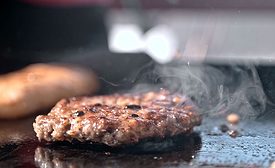Home » Keywords: » David Theno
Items Tagged with 'David Theno'
ARTICLES
The story of the 1992–1993 Jack in the Box outbreak is well documented, but how E. coli O157:H7 first showed up on the radar is less known
Read More
Ep. 128. Bill Marler: Perspectives on Poisoned and Food Safety Progress
September 19, 2022
Never miss the latest news and trends driving the food safety industry
eNewsletter | Website | eMagazine
JOIN TODAY!Copyright ©2025. All Rights Reserved BNP Media.
Design, CMS, Hosting & Web Development :: ePublishing



